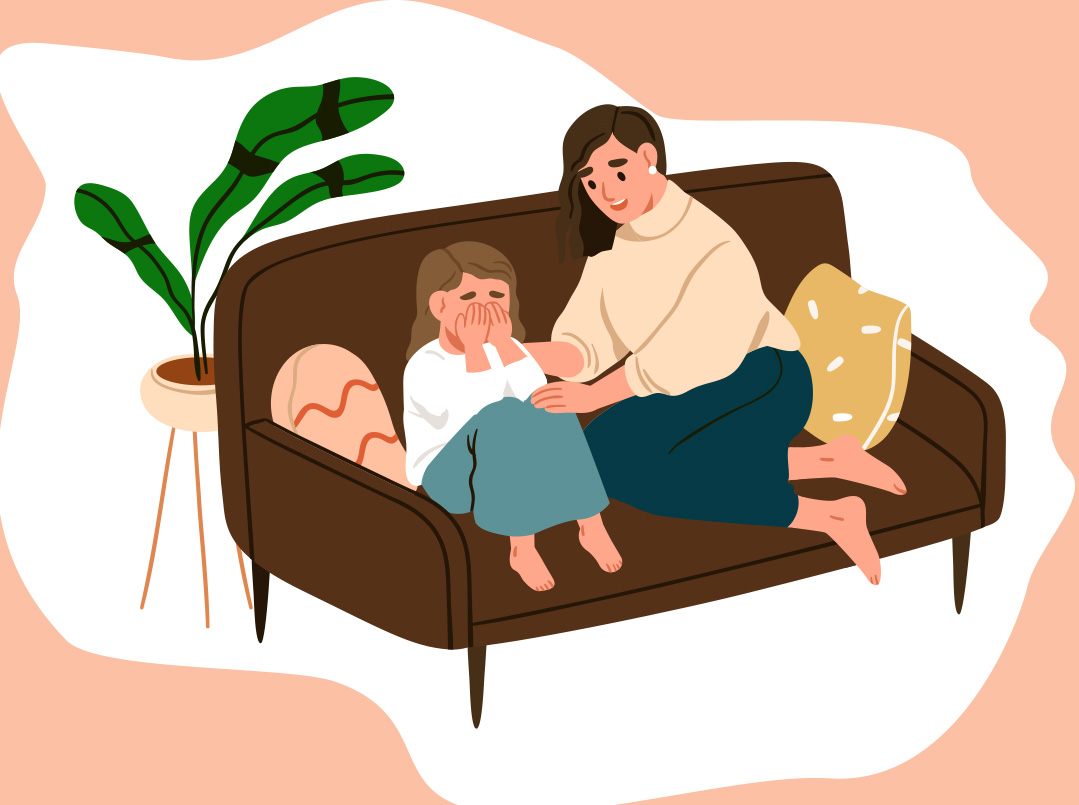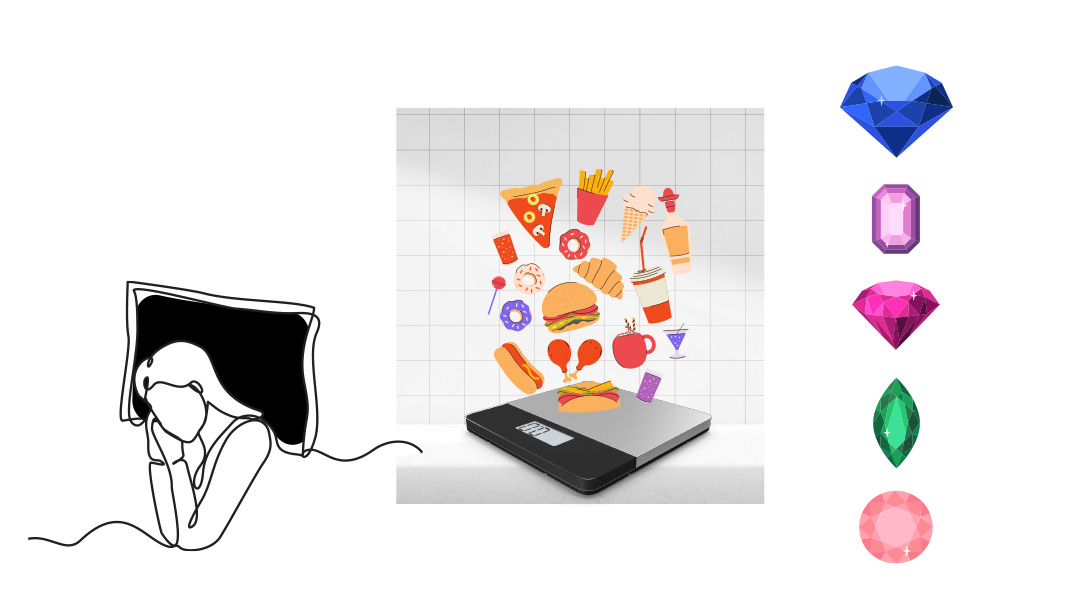Buy-In
| July 4, 2023To my surprise, the customer service agent merely said, “Oh, we don’t recommend that”

Buy-In
Zipora Schuck
A few years ago, I was teaching a class on Abnormal Child Psychology to a group of women matriculating for a degree. One evening, they came into class and asked for five minutes of class time to complete an assignment for a different Psych class. Once I agreed, one of the women turned her phone on speaker and dialed the Apple store.
A customer service agent answered, and my student told her that she was having a problem with her device, while mispronouncing its name. I whispered the correct pronunciation, but to my surprise, the Apple agent asked my student what the problem was, while repeating the mispronunciation. I wondered if I had been the one saying the word wrong all along.
The woman then went on to tell the agent that she had downloaded an app onto her tablet to help her monitor sodium content. After making a soup for dinner, she’d put her tablet in the pot to check its sodium levels, but the screen had become foggy and wasn’t working anymore.
I listened in disbelief, thinking to myself that this was sounding more and more like abnormal psychology!
To my surprise, the customer service agent merely said, “Oh, we don’t recommend that.”
At that point my students began clapping and informed her that she had passed the customer-service test. They had learned that Apple employees never correct customer mispronunciations, nor do they ever fault the customer for incorrect or negligent usage, because, as the customer service agent went on to explain, “Customers don’t buy a product when they are made to feel inadequate.”
It’s certainly good business advice — try asking for a dress in your size, only to have the saleswoman inform you that they don’t carry such large sizes, or asking for a price, only be told that if you’re asking you can’t afford it. Chances are you won’t be shopping in that store again.
But even more importantly, my students and I felt strongly that this idea contains a vital chinuch message. If we want our children and students to buy into us, into our lifestyle, our value system, our Yiddishkeit, then we can’t make them feel inadequate along the way.
We segued into a discussion about different ideas that could help our children feel valued and wanted.
- Pile on the genuine praise, whenever possible, in all different ways. No one ever tires of being told how great they are.
- Thank children for all different things, even expected behaviors. No, they aren’t doing you a favor, but they are more likely to repeat the behavior when they know it’s appreciated.
- Be pleasant and positive to be around. No one wants to emulate someone with a negative vibe.
- Hold discussions concerning a child’s behavior in private, whenever possible. Airing out a child’s misdeeds in front of siblings, neighbors, friends, or other students can be shaming. Take it a step further by saying, “I didn’t want to say this in front of anyone else.”
- Sarcasm and teasing directed at children are generally only funny to the one saying it, rarely to the one listening, and almost never to the one on the receiving end. Just don’t.
- Put-downs, name-calling, and comments like, “Well that was stupid (or fill in the blank) of you,” make a child feel terrible about themselves, and those terrible feelings extend to the person who told them so as well.
- Understand that all humans make mistakes, and sometimes even really big ones. Usually, the one who made the mistake already feels bad. Saying things like, “I can’t believe you did that,” or otherwise harping on the mistake, only makes the child feel worse.
Keep the atmosphere in your homes and classrooms respectful and pleasant, and hopefully your children and students will be return customers, eager to absorb whatever you have to offer.
Zipora Schuck MA. MS. is a NYS school psychologist and educational consultant for many schools in the NY/NJ area. She works with students, teachers, principals, and parents to help children be successful.
Flying Free or Staying Grounded
Dina Schoonmaker
IN our last segment, we discussed the model for understanding personalities based on the four elements of creation: fire, water, air, and earth. We discussed the first two elements, and now we’ll continue with the second set: the ruach personality and the afar personality.
Ruach, air, represents movement. In its higher presentation, a ruach personality is flexible, spontaneous, and deals with change well.
On its lower level, the ruach personality can be too spontaneous, too quick to seek change and lack staying power.
The afar personality represents earth, which is the heaviest of the elements. In its highest form, the afar personality is reliable, predictable, and thrives on structure. The afar personality can channel his strengths as a posek, dayan, or in an administrative position that involves establishing routines and systems.
In its lower presentation, the afar personality shows up in people with “heavy energy”; they may be rigid or lazy or possibly even depressive.
The afar personality struggles not to give in to inertia; they have to make sure they make informed decisions, and that their choices are not coming from what I call a horizontal position — i.e., a stay-in-bed attitude, with a desire to just stay put.
The ruach personality has the opposite problem. The ruach-personality woman always wants to switch things up. She’s quick to conclude that things aren’t going well and to opt for change.
Every personality has advantages and disadvantages. When we understand that, we can be more compassionate to ourselves and others.
Realize that Hashem puts us together with people we find difficult in order to balance ourselves. Fire, for example, is a wonderful thing, but it needs to be balanced with water and sandbags. Similarly, the eish personality needs to find pleasure in life as they’re growing and to have structure in place to ground them as they continue creating.
Remember the pasuk in Tehillim 68: “Elokim moshiv yechidim baisah.” Hashem takes different personalities with different elements and puts them in the same house in order that we should grow.
Dina Schoonmaker has been teaching in Michlalah Jerusalem College for over 30 years. She gives women’s vaadim and lectures internationally on topics of personal development.
Little Miracles
Dr. Jennifer Berkovich
OH, the wonderful world of newborn stools! New (and experienced!) parents know just how stressful those first few diaper-changing sessions can be.
There’s a huge spectrum for normal newborn stools, in both color and consistency, ranging from yellow to greenish, and runny or seedy.
Breastfed babies tend to have soft, mustard-colored stools, while formula-fed babies may have firmer and slightly darker ones.
Frequency can range from several times a day to once every few days. Breastfed babies can even go up to ten days without stooling.
As long as the baby is eating well, gaining adequate weight, and the stool is a soft and seedy/runny consistency, there’s no need for concern, even if baby seems to strain or cry during bowel movements. Stool that is hard and well formed may be an indication that the baby is constipated, which needs further evaluation.
Dr. Jennie Berkovich is a board-certified pediatrician in Chicago and serves as the Director of Education for the Jewish Orthodox Medical Association (JOWMA)
(Originally featured in Family First, Issue 850)
Oops! We could not locate your form.







